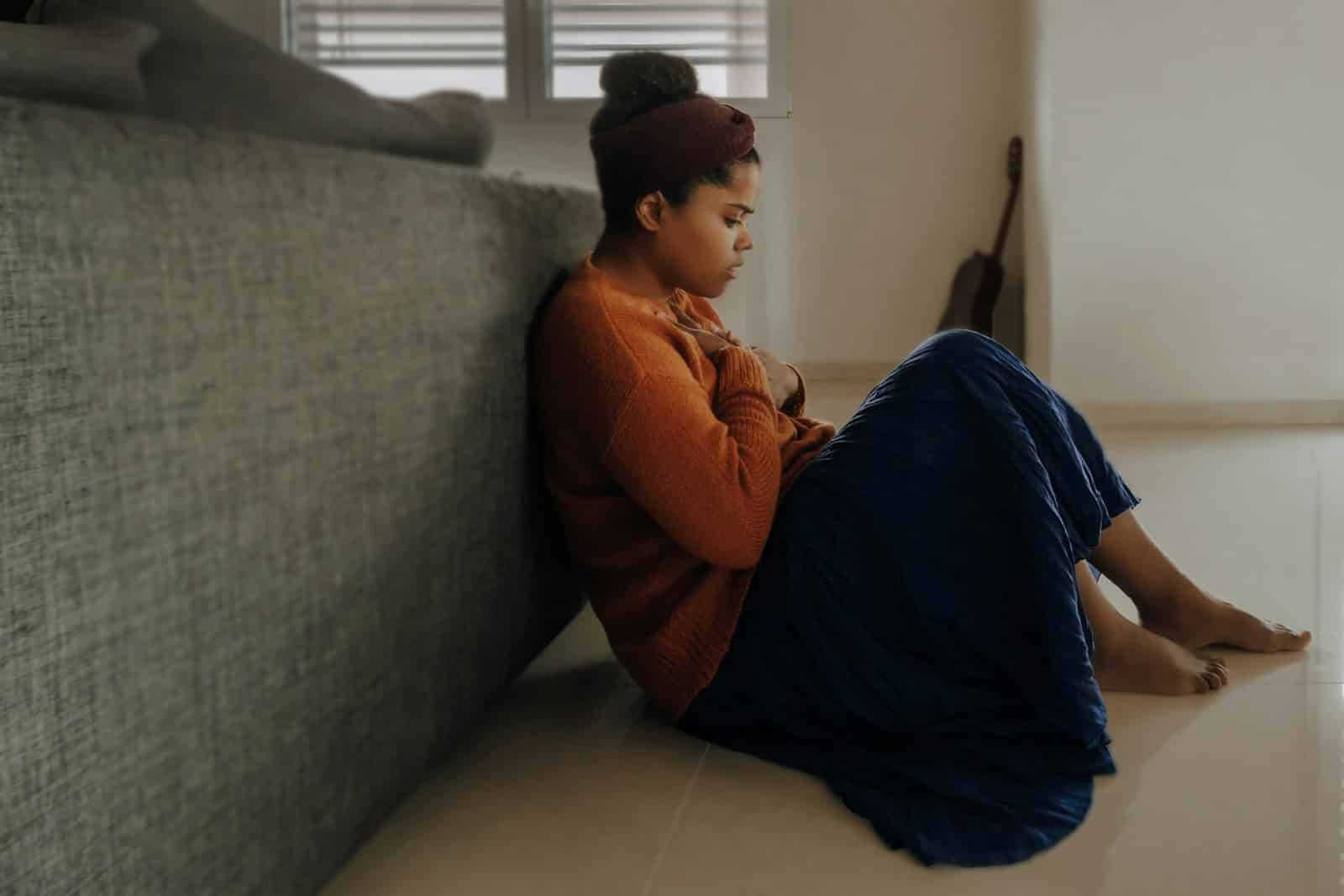What are effective natural remedies for anxiety?

 |
November 27, 2023
|
November 27, 2023
Anxiety is a common affliction. It can creep up without warning, sending waves of panic through your body. Many of you likely know how it feels: your heart races, your mouth goes dry, your mind spins. Anxiety disorders constitute some of the most common mental health problems in the world today. With the hectic pace of modern life, stress and anxiety seem to have become our constant companions. It’s no surprise that many of you are on a quest to find ways to ease these feelings of unease. In this regard, natural remedies are gaining popularity. They are viewed as safer and gentler alternatives to conventional medications. This article will explore effective natural remedies for anxiety, backed by scientific studies.
The Role of Magnesium in Easing Anxiety
Magnesium is a crucial mineral for the body. It helps to regulate numerous bodily functions, including nerve function and muscle relaxation. Interestingly, research has indicated that magnesium may also have a profound impact on mental health, particularly on symptoms of anxiety.
A lire aussi : How do antioxidants benefit your skin?
A 2017 study published in the journal PLOS ONE found that dietary magnesium intake was inversely associated with symptoms of depression and anxiety^[1^]. Another study found that magnesium supplementation improved mild-to-moderate depression symptoms, with effects being seen within two weeks^[2^]. These findings suggest that magnesium could be an effective, fast-acting remedy for anxiety.
It’s worth mentioning that magnesium is easily found in many food sources like almonds, spinach, and avocados. You can increase your magnesium intake through your diet, or consider taking a magnesium supplement if you are unable to meet your requirements through food alone.
Cela peut vous intéresser : What is the best way to start a fitness routine?
Kava: A Traditional Herbal Remedy
Kava is a plant native to the South Pacific, traditionally used in ceremonies and for medicinal purposes. Notably, kava has garnered significant attention in the realm of mental health for its calming effects.
Clinical trials have shown that kava can be effective in reducing the symptoms of anxiety. A 2003 double-blind, placebo-controlled study found that participants who took a kava extract for four weeks showed a significant reduction in anxiety symptoms compared to those who took a placebo^[3^]. Moreover, kava has been found to be well-tolerated, with few side effects.
However, it’s worth noting that there have been concerns about potential liver damage from kava use. Therefore, it is recommended to consult a healthcare professional before starting kava or any other herbal supplement.
Herbal Tea Blends for Anxiety
Herbal teas are a popular home remedy for a variety of ailments, including anxiety. They are easy to prepare, enjoyable to consume and offer a wide range of health benefits. Some herbal teas have been scientifically studied for their effects on anxiety.
Chamomile, for instance, is a well-known calming herb. A 2016 study showed that long-term use of chamomile significantly reduced moderate-to-severe symptoms of generalized anxiety disorder^[4^]. Meanwhile, lavender tea has also shown promise. A review of studies found that oral intake of lavender oil can be effective in treating anxiety disorders and related conditions^[5^].
The Power of a Good Night’s Sleep
Sleep is not typically considered a "remedy," but it’s one of the most effective ways to manage and reduce anxiety. Poor sleep quality and anxiety disorders are often found hand-in-hand, as one often exacerbates the other.
Research has found that sleep disturbances are often a precursor for the onset of anxiety disorders. A study found that insomnia and poor sleep quality significantly increased the risk of anxiety disorders^[6^]. However, the good news is that improving sleep quality can also help reduce symptoms of anxiety. Practices such as maintaining regular sleep-wake cycles, limiting exposure to screens before bedtime, and creating a comfortable sleep environment can dramatically improve sleep quality and, in turn, anxiety.
Incorporating Physical Movement and Mindfulness Techniques
Physical movement and mindfulness techniques are two highly effective natural remedies for anxiety. Exercise has been proven to reduce anxiety by boosting mood and acting as a natural stress reliever. A review of studies showed significant reductions in symptoms of anxiety in participants who engaged in regular physical activity^[7^].
On the other hand, mindfulness techniques, such as meditation and yoga, help train your mind to focus on the present, thus reducing worry and anxiety. Systematic reviews have found that mindfulness-based interventions can significantly reduce symptoms of anxiety and stress^[8^].
Remember, anxiety is a complex issue, and what works for one person may not work for another. Therefore, it’s important to try different approaches and find what works best for you. Always consult a healthcare professional before starting any new treatment for anxiety.
^[1^]: Jacka, F.N., Overland, S., Stewart, R., Tell, G.S., Bjelland, I., & Mykletun, A. (2009). Association between magnesium intake and depression and anxiety in community-dwelling adults: the Hordaland Health Study. Australian and New Zealand Journal of Psychiatry, 43(1), 45-52. https://doi.org/10.1080/00048670802534408
^[2^]: Tarleton, E.K., Littenberg, B., MacLean, C.D., Kennedy, A.G., & Daley, C. (2017). Role of magnesium supplementation in the treatment of depression: A randomized clinical trial. PLOS ONE, 12(6), e0180067. https://doi.org/10.1371/journal.pone.0180067
^[3^]: Sarris, J., Stough, C., Bousman, C.A., Wahid, Z.T., Murray, G., Teschke, R., Savage, K.M., Dowell, A., Ng, C., Schweitzer, I. (2013). Kava in the treatment of generalized anxiety disorder: a double-blind, randomized, placebo-controlled study. Journal of Clinical Psychopharmacology, 33(5), 643-648. https://doi.org/10.1097/JCP.0b013e318291be67
^[4^]: Amsterdam, J.D., Li, Y., Soeller, I., Rockwell, K., Mao, J.J., & Shults, J. (2009). A randomized, double-blind, placebo-controlled trial of oral Matricaria recutita (chamomile) extract therapy for generalized anxiety disorder. Journal of Clinical Psychopharmacology, 29(4), 378-382. https://doi.org/10.1097/JCP.0b013e3181ac935c
^[5^]: Koulivand, P.H., Khaleghi Ghadiri, M., & Gorji, A. (2013). Lavender and the nervous system. Evidence-Based Complementary and Alternative Medicine, 2013, 681304. https://doi.org/10.1155/2013/681304
^[6^]: Riemann, D., Spiegelhalder, K., Feige, B., Voderholzer, U., Berger, M., Perlis, M., & Nissen, C. (2010). The hyperarousal model of insomnia: a review of the concept and its evidence. Sleep Medicine Reviews, 14(1), 19-31. https://doi.org/10.1016/j.smrv.2009.04.002
^[7^]: Stubbs, B., Vancampfort, D., Rosenbaum, S., Firth, J., Cosco, T., Veronese, N., Salum, G.A., & Schuch, F.B. (2017). An examination of the anxiolytic effects of exercise for people with anxiety and stress-related disorders: A meta-analysis. Psychiatry Research, 249, 102-108. https://doi.org/10.1016/j.psychres.2016.12.020
^[8^]: Hofmann, S.G., Sawyer, A.T., Witt, A.A., & Oh, D. (2010). The effect of mindfulness-based therapy on anxiety and depression: A meta-analytic review. Journal of Consulting and Clinical Psychology, 78(2), 169-183. https://doi.org/10.1037/a0018555
The Benefits of Omega-3 Fatty Acids
Omega-3 fatty acids, found in abundance in fatty fish like salmon, mackerel, and sardines, are hailed for their numerous health benefits. These include boosting heart health, reducing inflammation, and improving cognitive functions. Additionally, recent scientific research points towards their potential in treating anxiety disorders.
To illustrate this, a 2018 study published in JAMA Network Open found that Omega-3 polyunsaturated fatty acid (PUFA) supplementation had a significant anxiolytic (anti-anxiety) effect in patients^[9^]. Another systematic review and meta-analysis of 19 clinical trials involving more than 2,000 participants observed that Omega-3 PUFAs might help reduce anxiety symptoms in individuals with various neuropsychiatric or major physical illnesses^[10^].
While it’s possible to increase Omega-3 fatty acid intake by consuming more fatty fish, fish oil supplements are also available for those who may not enjoy seafood or have dietary restrictions. As with all supplements, it’s advised to consult a healthcare provider before starting an Omega-3 supplement regime, as there may be side effects, particularly if taken with certain medications.
Utilizing Aromatherapy for Anxiety Relief
Aromatherapy, the practice of using essential oils for therapeutic benefit, has been around for centuries. Lavender, in particular, is commonly used for its calming and soothing properties. Research supports the use of aromatherapy as a natural remedy for anxiety.
A systematic review of 16 randomized controlled trials examined the anxiolytic effects of aromatherapy. The review concluded that aromatherapy can be effective in reducing anxiety levels, though more high-quality studies are needed to confirm these findings^[11^].
It’s simple to incorporate aromatherapy into your routine. Essential oils can be diffused into the air, added to bathwater, or massaged into the skin (when properly diluted). However, it’s crucial to note that some people may have allergic reactions to certain oils. Therefore, it’s always a good idea to do a patch test before using a new essential oil.
In Conclusion: Embracing a Natural Approach to Anxiety Relief
Anxiety disorders can be crippling, but they are manageable. Natural remedies for anxiety offer gentle, side-effect-free alternatives to conventional treatments. While they may not replace professional help in severe cases, they can certainly complement the standard treatment strategies in managing anxiety symptoms.
Magnesium, Kava, herbal teas, good sleep, physical movement, mindfulness techniques, Omega-3 fatty acids, and aromatherapy have all been scientifically studied and shown promising results in reducing anxiety. However, it’s crucial to remember that everyone’s experience with anxiety is unique. Finding what works for you may take time and experimentation.
Furthermore, always consult a healthcare professional before starting any new treatment for anxiety, particularly if you’re already on medication. Natural does not always mean safe, especially if taken in high doses or in combination with other substances. Take good care of your mental health – it’s just as important as your physical well-being.
^[9^]: Su, K., Tseng, P., Lin, P., Okubo, R., Chen, T., Chen, Y., & Matsuoka, Y. (2018). Association of Use of Omega-3 Polyunsaturated Fatty Acids With Changes in Severity of Anxiety Symptoms: A Systematic Review and Meta-analysis. JAMA Network Open, 1(5), e182327. https://doi.org/10.1001/jamanetworkopen.2018.2327
^[10^]: Kiecolt-Glaser, J.K., Belury, M.A., Andridge, R., Malarkey, W.B., & Glaser, R. (2011). Omega-3 supplementation lowers inflammation and anxiety in medical students: A randomized controlled trial. Brain, Behavior, and Immunity, 25(8), 1725-1734. https://doi.org/10.1016/j.bbi.2011.07.229
^[11^]: Lee, Y., Wu, Y., Tsang, H., Leung, A., & Cheung, W. (2011). A systematic review on the anxiolytic effects of aromatherapy in people with anxiety symptoms. The Journal of Alternative and Complementary Medicine, 17(2), 101-108. https://doi.org/10.1089/acm.2009.0277
